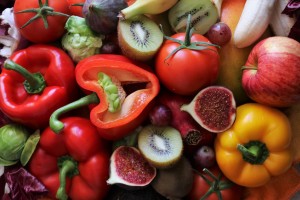
New York: Fruits and vegetables are the cornerstone of a healthy and varied diet. They provide the human body with an abundance of nutrients, strengthen immune systems and help lower risks for a number of diseases. Yet, despite these tremendous benefits, we do not consume enough of them. The United Nations Organisation has declared 2021 as ‘International Year of Fruits, Vegetables’.
“By declaring 2021 as the International Year of Fruits and Vegetables, we are taking a closer look at a critical sector and urging the adoption of a more holistic approach to production and consumption that benefits human and environmental health,” UN Secretary‑General António Guterres said on the launch of the International Year of Fruits and Vegetables 2021, here on December 16. He added: “Let us use this International Year to rethink our relationship with how we produce and consume food. Let us re-examine our food systems and commit to a healthier, more resilient and sustainable world where everyone can access and afford the diverse nutrition they need.”
A key moment in the International Year of Fruits and Vegetables will be the Food Systems Summit where all stakeholders will intensify efforts to make food systems more inclusive, resilient and sustainable.
The 2030 Agenda for Sustainable Development emphasises the role food systems play in fighting hunger, ending poverty and protecting our planet. “Yet, today, rising populations, increased urbanisation, the growing scarcity of natural resources, agricultural pollution and land use change, high levels of food loss and waste and the impacts of climate change are all highlighting the fragility of our food systems,” Guterres noted. He added: “As the COVID-19 pandemic continues to affect the health and livelihoods of people across the world, we must come together to ensure that nutritious food, including fruits and vegetables, reaches the most vulnerable, leaving no one behind.”
– globalbihari bureau





